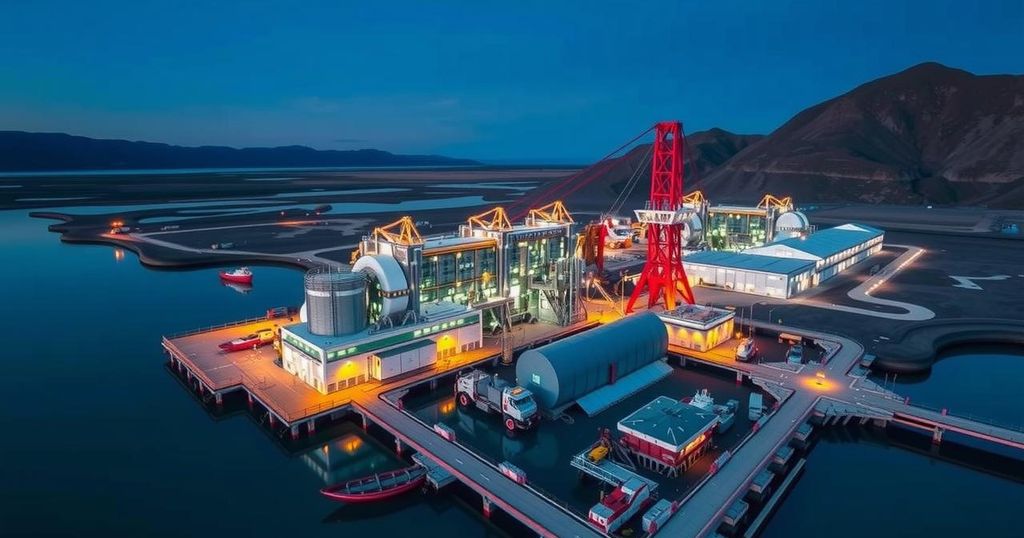Bolivia Secures $1 Billion Lithium Deal with China

Bolivia has signed a $1 billion agreement with China’s CBC to build two lithium carbonate production plants in the Uyuni salt flats. This partnership positions Bolivia to influence the global lithium market significantly, as it holds sizable reserves of this critical component for electric vehicle batteries. President Arce highlighted the importance of this deal amid ongoing explorations for further contracts.
On November 27, 2024, Bolivia announced the signing of a $1 billion partnership with China’s CBC, a subsidiary of the major lithium battery manufacturer CATL. This agreement entails the construction of two lithium carbonate production facilities located in the Uyuni salt flats. The first plant will possess a capacity of 10,000 tons, while the second will be able to produce 25,000 tons annually. President Luis Arce attended the ceremony, asserting that this initiative establishes Bolivia as an influential contributor to the global lithium market, crucial for batteries in electric vehicles and mobile devices. The deal builds upon an existing arrangement with Russia’s Uranium One Group for a lithium extraction facility, which is pending parliamentary approval.
Bolivia is recognized for holding one of the largest lithium reserves worldwide, a resource that has garnered significant global interest, particularly with the increasing demand for electric vehicles. The Uyuni salt flats are believed to contain vast quantities of lithium, often referred to as ‘white gold’ due to its value in battery production. The burgeoning electric vehicle market has prompted countries to secure reliable lithium sources, leading to strategic agreements with international companies.
The recent $1 billion deal with China marks a significant step for Bolivia in its aim to leverage its lithium resources to enhance its role in the global market. With negotiations for additional contracts underway and prior agreements in place, Bolivia seeks to position itself prominently as a key player in the lithium industry, especially as the demand for electric vehicles continues to grow.
Original Source: jordantimes.com




